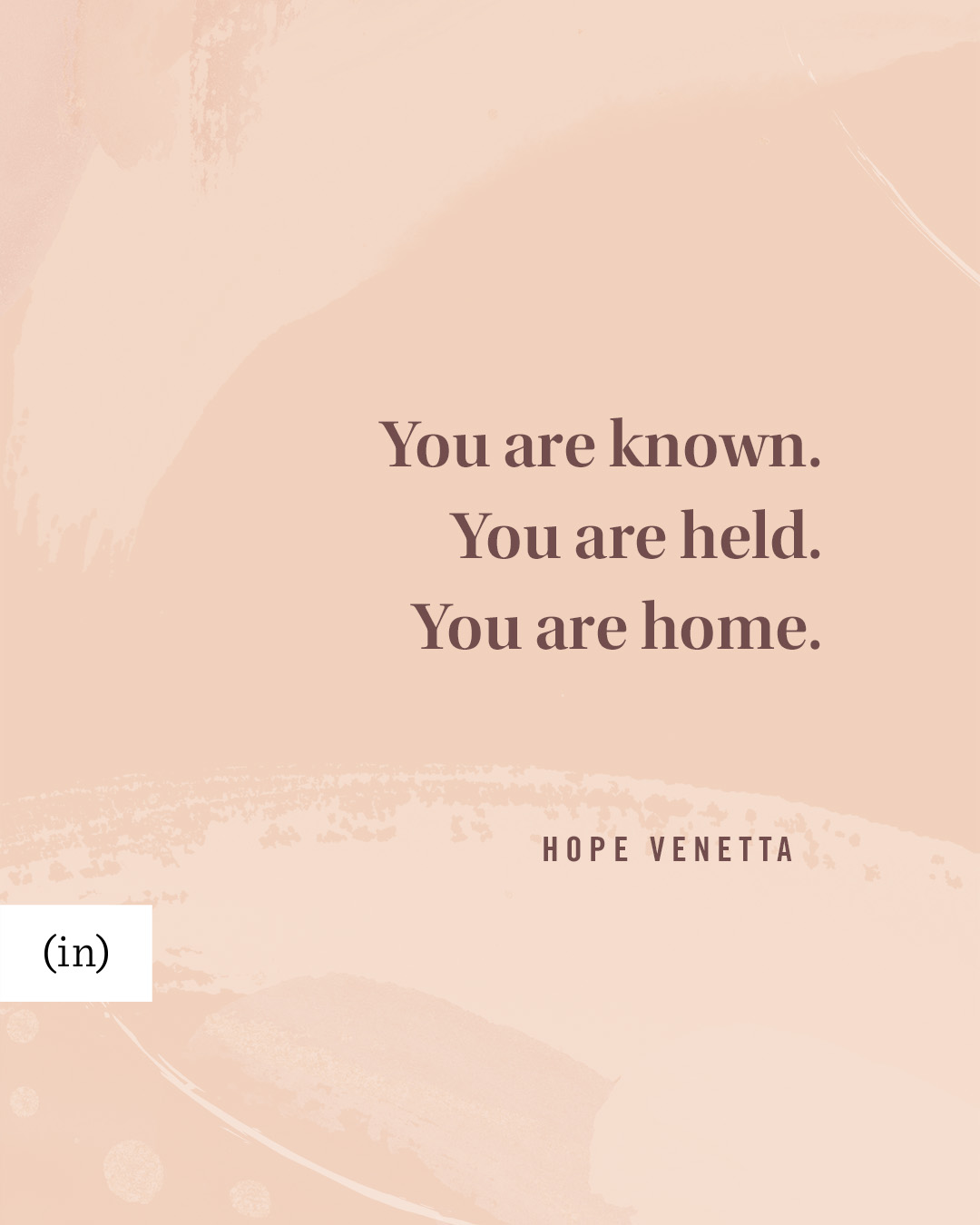A few years ago, I found out my husband can trace his lineage back to 1650.
His family’s roots reach deep into the soil of Collelongo, a mountain village in southern Italy. There are records, names, and stories of his people. When he was a kid growing up in a small midwestern town, the community would gather each year for the St. Rocco’s picnic — a yearly celebration that brought together descendants of Collelongo. Whether they realized it or not, that shared tradition served as a grounding force in their lives. Their roots were visible, celebrated, intact.
When I learned this, I was happy for my husband but also heartbroken over my own heritage. At the time, I barely knew who my grandparents were. I couldn’t name more than one great-grandparent. There were no dusty documents or home videos connecting me to a homeland. No saints, no picnics, no lineages printed out on the back church programs. Just gaps, silence, and loss.
I felt like an orphan. Actually, more truthfully, I felt robbed. Because, literally, my people were taken from their land, stripped of their language and culture, renamed, and sold. My ancestors endured the dehumanizing brutality of slavery and carried its legacy for generations. Not only that, but somewhere in the midst of all that suffering and survival, records were lost, some were never even written at all.
What do you do when your roots are hidden? What do you do when you long to belong, but you don’t know where — or who — you come from?
That question started me on a journey of leaning into my identity as a Black woman. I studied history. I sat with my grief. I wrestled with theology and trauma. And, slowly, I began to find God not just in heaven, but in my heritage. In the silence, I started to hear stories. In the gaps, I saw grace.
Then, in 2016, something changed. At a family reunion (a classic Black family cookout, might I add, with matching T-shirts and all), I was handed a packet of research compiled by some distant relatives on my mother’s side. I opened the pages and there she was.
Feely. My great-great-great-great-grandmother. An enslaved woman who had lived on a plantation in Wake County, North Carolina.
A name.
A life.
A root.
I wept. Because, for the first time, I could reach back and grab hold of something. Someone. I wasn’t an orphan. I was the daughter of Feely. A descendant of a people who endured pain, who prayed and loved and survived so I could be here today.
Romans 11 NIV speaks of being “grafted in” — of once being a wild olive shoot, now sharing in the nourishing root of something cultivated. Paul was writing to Gentile believers, reminding them that their inclusion in the family of God wasn’t a mistake or an afterthought.
They belonged. And so do we.
Even when the family tree is fractured. Even when the records are gone. Even when all you have is one name and the weight of what was lost. In Christ, we are not rootless. We are grafted in, joined into God’s love, God’s promise, and God’s people. We are part of a holy lineage.
Maybe you’ve felt what I’ve felt — disconnected, disqualified, or distant. Maybe your story has gaps and grief, too. But, friend, let me tell you this. Your roots go deeper than the eye can see. Your belonging is not measured by what’s been documented, but by what God has declared.
You are known.
You are held.
You are home.
Indeed, you are blessed with belonging through the bloodline of Christ.
Leave a Comment






Ms. Hope Venetta, your article has helped me because I too know very little about my background. But I am a believer & realize I have the most precious heritage. I am a member of God’s family, his daughter. Hid bless you✝️
Thank you so much for sharing this. It means the world to know the post resonated with you. We may not know all the details of our earthly heritage, but claiming our place in God’s family truly is the most precious inheritance of all. I’m so glad we get to walk in that truth together.
How encouraging as I have also had those very same thoughts about my descendants with nowhere to start. Thank you for sharing!
I’m so touched that this encouraged you. That feeling of not knowing where to begin can be overwhelming—and yet, God honors our desire to connect and heal. Even the smallest steps we take become seeds planted for those who come after us. Thank you for reading and sharing your heart!
What you have written is as much a testimony as it is a sacred reclaiming of voice, memory, and faith. The way you captured the ache of lost lineage and the grace of being rooted in God’s family, is simply beautiful. That final line— “Indeed, you are blessed with belonging through the bloodline of Christ.” —affirms a most powerful truth. It reminds us that no matter what has been lost, stolen, or erased,
our identity is secure in Him..
As I read your story, I was deeply moved by your personal journey and how it speaks to a collective truth so many of us carry. Our histories were disrupted, our stories buried, our identities distorted—and yet, we are still here. Rooted in something far greater than any document could record.
Your voice and story are so vital right now because even today, parts of our history are being erased all over again—this time from textbooks, classrooms, and curriculum. The truth of who we are and where we come from is under threat of being silenced. But your story pushes back against that, as it plants a flag and preserves memory.
Thank you for honoring Feely and helping us remember who we are.
Thank you—truly. Your words feel like a balm and a benediction. I wrote this piece, unsure if I could do justice to the ache and the hope I carry. To know that it resonated so deeply, and that you see it as both testimony and reclaiming, affirms everything I hoped it might offer.
Yes—we are still here. Rooted, resilient, and rising. And even as history is distorted or erased, we keep telling the truth. Thank you for recognizing the weight of that, and for standing in this remembering with me.
God’s timing is so amazing \0/
It is indeed.
Hope,
I know little about my family history. One niece traced our history & found out a few things. We could be part German, Irish not sure. My dad’s parents one brother died when dad was 10-12, tuberculosis. Mom was an only child & her dad died when she was 17. Her mom died when I was about 6. Grew up with foster grandparents on dad’s side. Don’t know much about my cousins. One thing I do know is I am a part of a large family with deep roots–the Family of God. We love on, encourage & pray for each other. That is more important than anything!!!
Blessings 🙂
Thank you so much for sharing your story with me. It’s incredible how even when the details of our earthly lineage are hazy or incomplete, we can still rest in the truth that we are part of something greater—the Family of God. That kind of belonging runs deeper than bloodlines. The love, encouragement, and prayers we offer one another are a testament to the legacy we’re building now. So grateful to be connected with you in that family. Blessings to you as well!
Hope – your parents gave you a name that exemplifies the beauty of your Spirit. Thank you for your heart, emotion and couurage you allowed God’s grace to move you with in order to write this beautiful article.
I believe the vastness of the Heavenly Spirit and His strength is every human being’s birth rite to belonging and connection. I have Faith we will get there.
Kara, Yes—belonging is our birthright. And I join you in holding faith that we will get there, together, carried by grace and rooted in the Spirit that connects us all.
Beautiful, beautiful words that are so resonate and true. Thank you for this sharing, Hope. Your words offer a kind of “hope” that is very much needed for seeking hearts these days. Thanks for sharing at (in)courage, today!
Thank you so much for your encouragement—it means the world coming from you. I’m deeply grateful to be welcomed into the (in)courage space and honored that these words could offer a little bit of hope (in every sense of the word!) to those who are still seeking. Thank you for making room for stories like mine.
An honor to make space for stories like yours. These words spoke deeply to my own heart. Keep on walking ahead with this message, Hope. Many need to hear it.
Oh my, this brought me to tears. Thank you so much for sharing your story and this truth with us.
Thank you so much for reading and receiving it with such tenderness. Your response truly humbles me. If these words moved you to tears, I pray they also move you toward deeper healing and connection. You are not alone in this journey.
Thank you so much for your encouragement—it means the world coming from you. I’m deeply grateful to be welcomed into the (in)courage space and honored that these words could offer a little bit of hope (in every sense of the word!) to those who are still seeking. Thank you for making room for stories like mine.
This made me cry. We carry the burdens of our ancestors deep inside. Some of which we don’t even know. We just feel it in the depths of our being. And so we should carry one another’s burdens as well. Not with complacency or criticism or judgements, but with hearts full of compassion.
Yes—exactly this. You put into words what so many of us carry but can’t always articulate. That deep, quiet ache that lives in our bones… it’s real, and it matters. And you’re so right—we were never meant to carry it alone. May we all become better at holding space for one another with compassion, not judgment. Thank you for your beautiful reflection.
This is so moving and real. Thanks for writing it and sharing.
Being known is a serious thing. This is such a tender and familiar story. Thank you.
Hope,
You are beautiful and you write beautifully…so perfect for a woman of God named HOPE who brings hope to others!
Sending you summer joy,
Lisa Wilt
Wow! Very inspiring. Thank you for sharing. MC ‘92
A beautiful article – my African and Indigenous roots trace back to just north of Roxboro, NC.
Thank you for reminding us we are not floating like a lost stick in a big ocean.
But we are being built with other believers into a house of God made with many sticks. ❤️